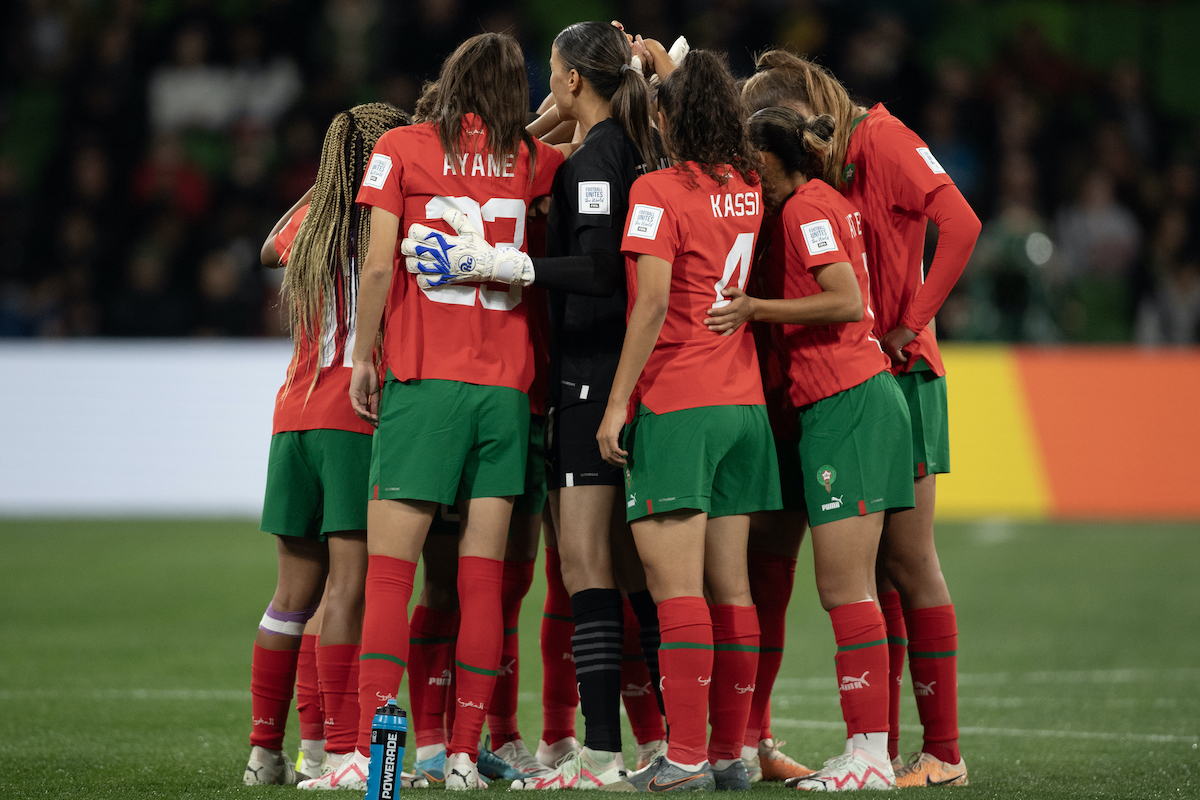The BBC Apologizes for Trying To Out Women’s World Cup Players From Country Where Being Gay Comes With Prison Time

Like many major news outlets, the BBC has sent reporters to cover the Women’s World Cup, happening now in Australia and New Zealand. But rather than show any interest in the game or respect for the players, the BBC has instead decided to spend its time trying to expose queer and queer suspected people living in vehemently homophobic countries to danger. Good one guys.
The BBC recently apologized for their “inappropriate” question to the captain of the Moroccan women’s football team during the World Cup. Just before the Moroccan team’s match against Germany, team captain Ghizlane Chebbak fielded questions from reporters, one of whom had to be immediately shut down.
The BBC reporter asked her ‘In Morocco, it’s illegal to have gay relationship. Do you have any gay players in your squad and what’s life like for them in Morocco?’
…. Are you joking?
The moderator for the interview quickly jumped in to defend the women’s team saying “Sorry, this is a very political question, so we’ll just stick to questions relating to football.” In a monumental display of asshat-ery, the journalist doubled down saying that the question “wasn’t political,” arguing that it’s “about people, it’s got nothing to do with politics. Please let her answer the question.”
A journalist attempting to frame queer people’s risk of political violence from homophobic policies in their home country as “not political” demonstrates a shocking level of ignorance. At first I couldn’t even believe that a journalist would be so foolish as to ask a professional athlete to endanger her teammates ON AIR, and then I saw the video.
After the exchange the national broadcaster apologized for the question, calling it “inappropriate” and saying the BBC had “no intention to cause any harm or distress.” Too late for that. According to a CNN reporter on the scene, “some members of the Moroccan media were audibly dismayed by the question”. Probably because they don’t want their women’s team members to be jailed after being outed.
According to Human Rights Watch, Morocco’s political landscape makes it a dangerous place for the LGBTQ+ community. Same-sex intimacy is criminalized, Moroccans who violate the law could face six months to three years in prison. One would think that, knowing that information, a BBC journalist would know to keep their mouth shut and not ask people to out themselves, but one would be wrong.
But then again, this is the same BBC that faced widespread criticism from LGBTQ advocates for publishing an article in 2021 titled “We’re being pressured into sex by some trans women,” a New York Times-level anti-trans group-think piece which painted trans people as sexual predators. More recently, the BBC faced criticism again from LGBTQ+ activists after reissuing guidelines that discouraged its journalists from going to LGBTQ+ Pride events in order to prevent accusations of bias… thereby demonstrating their bias. With a track record like this, how can we expect anything different?
(featured image: Joe Prior/Visionhaus via Getty Images)
Have a tip we should know? tips@themarysue.com